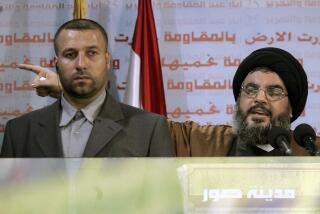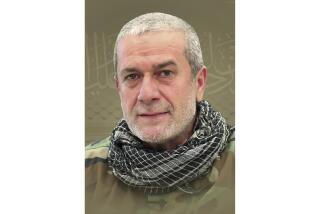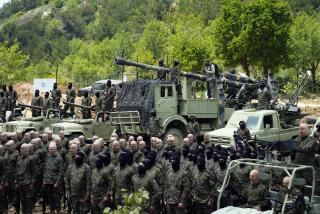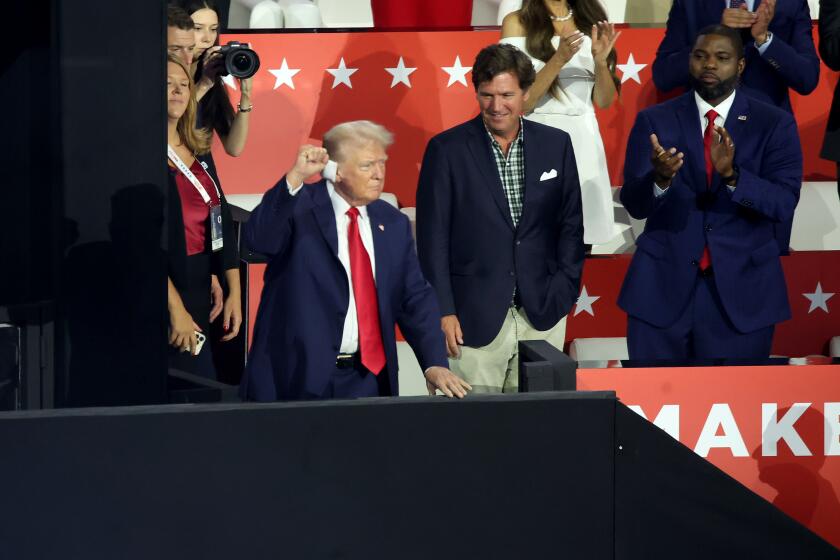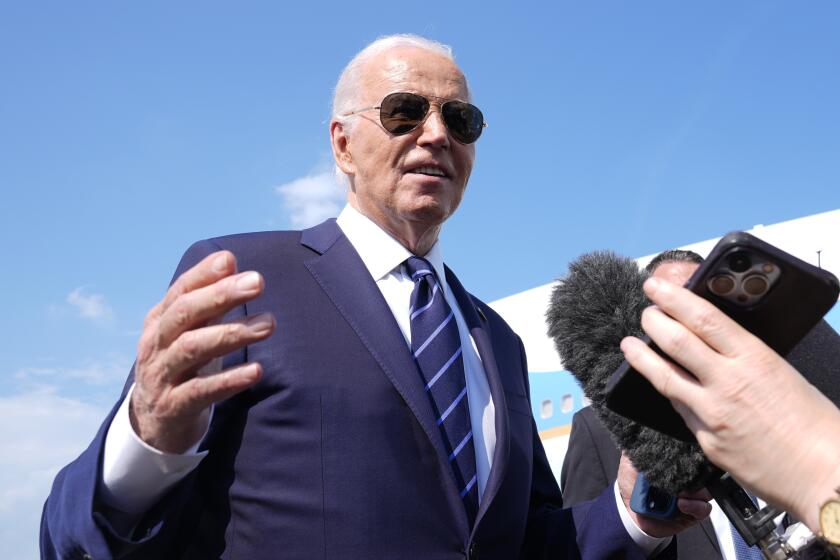Iran says high-ranking commander killed in Israeli airstrike in Syria
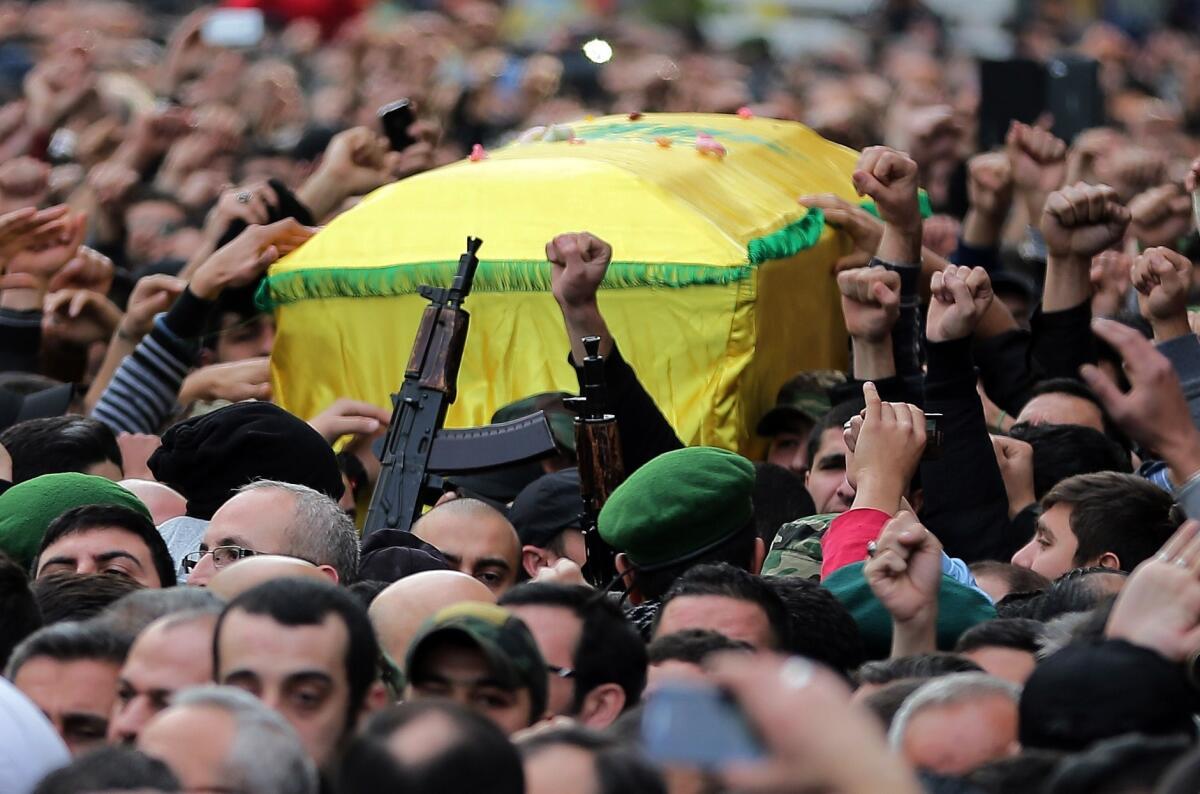
Iran confirmed Monday that a high-ranking commander was among those killed in an Israeli airstrike in Syria, as the pro-Tehran Lebanese group Hezbollah held funerals for fighters lost in the attack.
In a statement, Iran’s Islamic Revolutionary Guard Corps said that Brig. Gen. Mohammad Ali Allahdadi was killed Sunday in what it called a “criminal” Israeli attack in the Quneitra region of southern Syria, close to the Israel-occupied Golan Heights.
Some news reports said the strike came from an Israeli helicopter. Other reports suggest that the attack may have been carried out by an Israeli drone aircraft.
The general was providing “consultation” to Syrian authorities in their fight against “terrorists,” the Iranian statement said.
Tehran renewed allegations that Israel and the United States were backing Al Qaeda-style groups fighting in Syria to oust the government of President Bashar Assad.
Among the major rebel factions fighting in the Quneitra area of Syria is the Al Qaeda-affiliated Al Nusra Front.
Israeli officials have not commented directly on the attack. Israel has generally declined to confirm or deny more than half a dozen or so reported Israel air strikes targeting pro-government targets in Syria in the past two years or so.
Israeli press reports speculated that the aerial assault may have been intended to thwart Hezbollah plans to expand its proximity to Israeli-controlled territory in the Golan Heights as a possible launching pad for attacks on Israel.
Israel and Hezbollah fought a month-long war in 2006 and remain bitter adversaries. Israeli officials have repeatedly expressed concern about Hezbollah’s arsenal of tens of thousands of missiles based on Lebanese soil. Iran and Syria have helped facilitate Hezbollah’s missile buildup, Israeli officials say.
The U.S. government lists Hezbollah — a dominant military, political and social force in Lebanon — as a terrorist group.
Iran and its protégé, Hezbollah, have been crucial backers of Assad’s government. Damascus has been fighting an almost four-year war against U.S.-backed rebels and other insurgent factions, including the Al Qaeda-linked Al Nusra Front and the Islamic State, an Al Qaeda breakaway faction.
Iran says it has sent only advisers and trainers to Syria, not front-line combat forces. Allahdadi is at least the second high-ranking Iranian commander to be killed inside Syria during the war. Tehran is also a key financial supporter of Damascus.
Hezbollah has dispatched thousands of its militiamen to Syria to fight alongside Assad’s forces. The presence of Hezbollah’s seasoned fighters is widely recognized as a major factor that has helped Assad’s government remain in power as Syrian forces push insurgents back from Damascus and other strategic areas.
On Monday, thousands gathered in Beirut’s southern suburbs to mourn Jihad Mughniyeh, 25, who was regarded as a rising figure in Hezbollah. He was the most prominent of the six Hezbollah members killed in the strike. His funeral became a message of defiance against Israel.
Mughniyeh, whose casket was draped in the Hezbollah flag, is the product of a storied Hezbollah blood line. His father, Imad Mughniyeh, a legendary Hezbollah military strategist, was killed in 2008 in a suspected Israeli car bombing in Damascus.
Media reports indicate that the Hezbollah fighters killed in Sunday’s attack may have been in a vehicle targeted by one or more missiles fired from the Israeli aircraft.
Hezbollah officials were quoted in various media outlets vowing retaliation against Israel.
Analysts generally downplayed the likelihood of a major Hezbollah strike against Israel anytime soon. Hezbollah leadership is unlikely to risk a costly war with neighboring Israel, observers say, at a time when its forces are deeply mired in the Syrian conflict.
As a precaution, the Israeli government has ordered farmers away from fields close to the border and reportedly deployed an anti-missile “Iron Dome” battery.
“I do not estimate Hezbollah will want to open a wide-scale operation against the IDF [Israeli Defense Forces] at this point,” a retired Israeli major general, Eyal Ben-Reuven, told Israel Radio. “However, Hezbollah undoubtedly suffered a heavy blow and Israel’s defense system must assume Hezbollah will want to retaliate.”
Staff writer McDonnell reported from Beirut and special correspondent Mostaghim from Tehran. Special correspondent Batsheva Sobelman contributed from Jerusalem.
Twitter: @mcdneville
More to Read
Start your day right
Sign up for Essential California for news, features and recommendations from the L.A. Times and beyond in your inbox six days a week.
You may occasionally receive promotional content from the Los Angeles Times.
